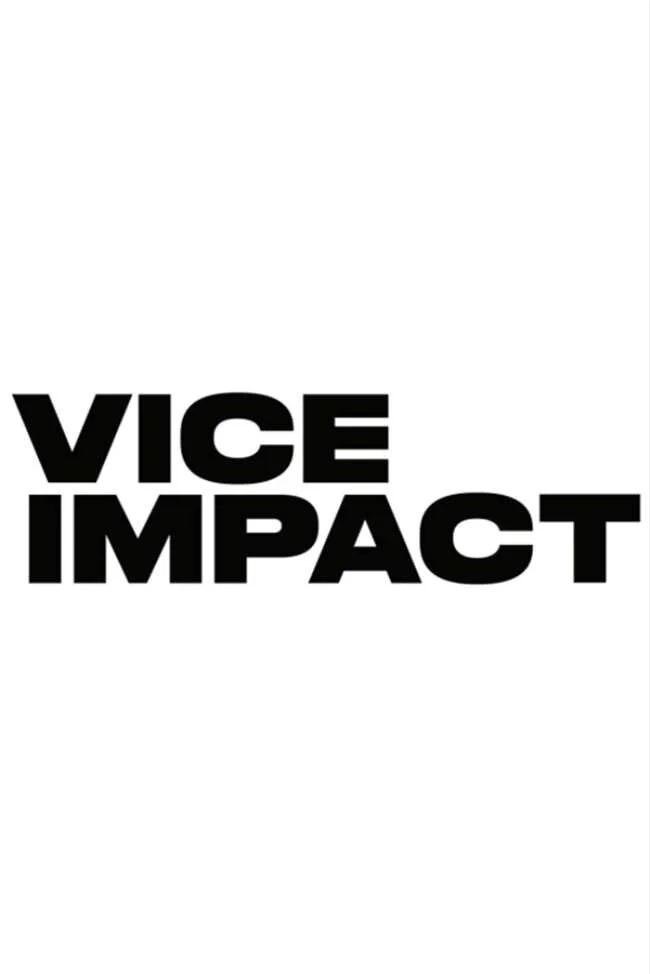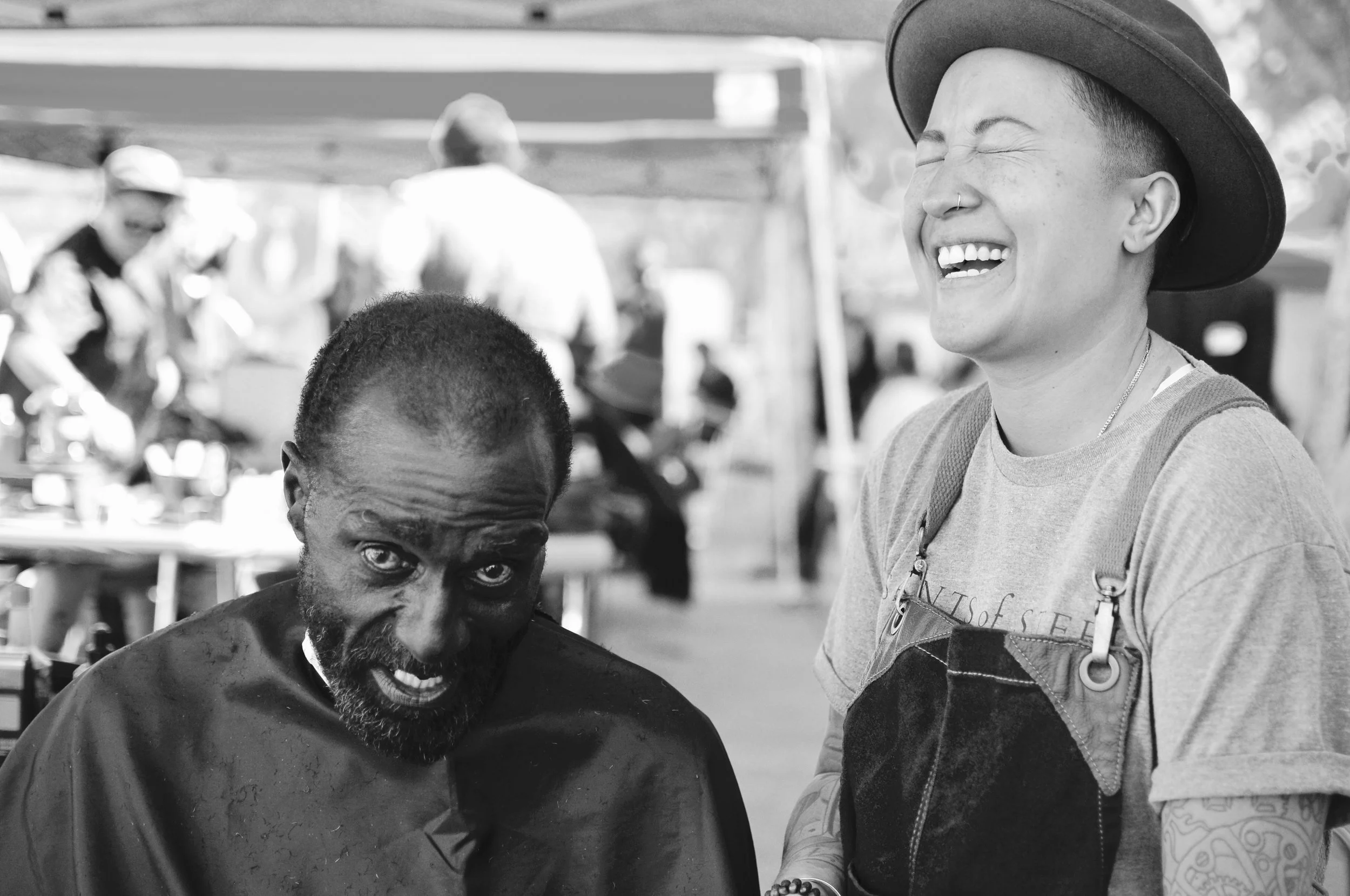California-based barber and activist Jaz Limos's non-profit, Saints of Steel, provides marginalized communities with a simple service to get them back on their feet.
Chances are you’ve never thought about a haircut the way Jaz Limos thinks about a haircut. For most of us it’s a chore, a labor of love, or just a way to look clean and fly before a Saturday night out. The amount of times a haircut has changed your life are probably few and far between. Limos, on the other hand, thinks about how a haircut can change someone’s life every day. In her chair, and in the chairs of the stylists and barbers who volunteer for her, the people they serve are often those that society refuses to see. Those who need a revamp, a change, no matter how seemingly mundane.
The profundity of the moment when she swivels the chair around is never lost, because in that moment it’s impossible to overstate the power of dignity restored. Strength accrues visibly: backs straighten, smiles burst forth. Often in that moment, tears are shed: people seem to see who they ought to be.
Limos is the co-founder (along with partner Juliette Reyes) of Saints of Steel (SOS), a California non-profit that provides haircuts free of charge to underserved families and the homeless, as well as to displaced youths and members of the LGBTQ community. The haircut is just the start. SOS partners with various other non-profits, case managers, and social workers, to learn about the specific needs of the people they’re serving, and then hosts pop-ups where those needs might be addressed, and assistance provided: things like new clothing, job interview training, and transitional housing support. Sometimes they even reconnect families via social media.
VICE Impact spoke with Limos about her own family’s history with homelessness, and the deep empathy required to barber and serve vulnerable populations.
VICE Impact: How did you get into barbering?
Jaz Limos: My cousin was my barber, cutting my hair. When I told him that I wanted to take the skill set that I had for building businesses and help non-profits or start my own non-profit, he said why don’t you do barbering. There was a program he could connect me with. So I was a business manager for Apple by day and a barber student by night. I didn’t know anything about hair, at all, but I wanted to be the one who could connect with the people as I was cutting their hair.
How did that go?
I would start these great conversations, and just want to turn them around and talk to them face to face. Especially when I was cutting hair in the community. Those were the stories that really changed my outlook. When I’m in San Francisco, I’m always really terrified that when I’m cutting hair, that the next person whose hair I’ll be cutting is my father, because he is someone who’s been living on the streets.
What would you do if your father came in and sat in your chair?
I actually had a run-in with my father out on the street before I left Apple. He didn’t recognize me, and initially I didn’t know it was him. There was a man with a hoodie on, asking for money. I told him I’d split my sandwich with him, and when he looked up, it was my biological father. It stunned me, because he looked so different. He said that I looked like his daughter, and I told him I am his daughter. He immediately sprung up and he was so embarrassed. He said he was sorry he hasn’t reached out, but he didn’t want to go back home until he got a job and had his life together. I gave him my information, but he still hasn’t gotten to that space yet.
So when we design these programs, we have them with people like my father in mind. What kind of activations do we have at these pop-ups that would give him the confidence to look at himself in the mirror and say, “Let me try again. I look great, I have people willing to help me, I’m willing to take these steps”?
Do you think that goes for a lot of displaced and homeless people, this lack of confidence, the feeling that they don’t deserve to go back to a family?
As we started to compare stories and as I was cutting hair, I learned that people wanted to do something after this haircut. And that’s not different than us. When people who can afford it get a haircut, it’s often because they also have a job interview, or they also have a party or graduation or taking photos at a wedding. So someone who’s on the street who’s getting the cut all of the sudden feels that they can apply for that ID so they can get that job, or I can do this video and record it for my family to get reconnected.
Why do you think hair styling is a good entry point for activism?
It’s a unique entry point because people open up to the person doing their hair. They start to share these intimate stories about themselves, and there’s this immediate bond and trust that happens. It’s quite instinctual. But the haircut is just the beginning. At SOS we’re about second chances. There are a lot of non-profits out there serving people in need, but in most cases the services are not easily accessible. It almost feels piecemeal. Or the resources aren’t received in an order that offers a path towards long term change.
So our goal is that by the time someone looks in the mirror, that moment gives them just enough confidence to start a new life. There’s a short window where they have this confidence before they start to think about their own situation. We have partners to take each haircut to the next level, offering participants the resources that they need for a life-long transformation.
Do you think that the effect is more profound to young people or people in the LGBTQ community because, due to social pressure, they don’t often don’t get acceptance for being themselves?
We did a haircut at the LGBTQ Center, and there was this young girl from upstate New York. She had read an article about us and she knew that I was a lesbian. So she actually wanted to talk to me about the process of cutting her hair from long to short. The small city that she was from everyone knew everyone, and her family was scared that she was a lesbian, and they told her that if she ever cut her hair, that’s the end of it. So they told her town barber and hair stylist not to cut her hair. She said that she didn’t know who she was when she looked in the mirror. To the point where she ran away from home and came to San Francisco because she would find someone to cut her hair. She didn’t want to look like a boy, but she didn’t know what she wanted.
So someone told her about Saints of Steel’s work with the LGBTQ community, and she wanted a safe space for someone to cut her hair for the first time. We partnered her with a stylist who would take as long as possible, going layer by layer to show her in the mirror exactly what it would look like. A full on consult. And she finally got her short hair, was in tears, and said this was the person that she had been waiting for her entire life. This was the change, and this was who she was going to be forever.
This interview has been edited for brevity and clarity.






